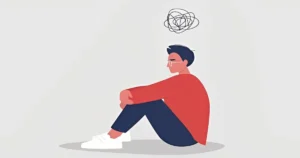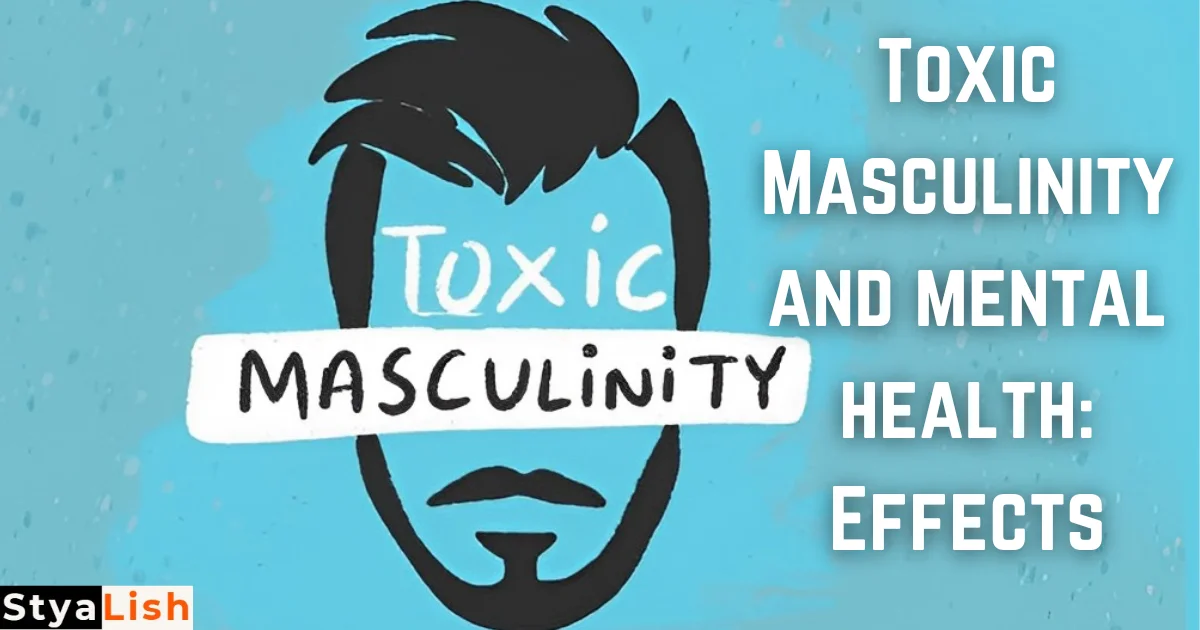Toxic masculinity and mental health are interrelated to each other. But, unfortunately, it’s gotten somewhat controversial to talk about toxic masculinity. You have probably ever seen your dad waving his fist in a furious uproar as the crisis in masculinity flashes across his TV screen.
Not all masculinity is toxic, of course. Nonetheless, some male characteristics can be harmful to people and society as a whole. So what precisely is it, and why is it a topic of conversation?
Toxic masculinity: A Brief Guide

The collection of socially backward characteristics that encourage homophobia, wanton aggression, gender inequality, and dominance over others is known as toxic masculinity. The idea can be challenging, even if it seems simple enough. But some characteristics help it come into greater focus.
Where does the phrase come from?
Many people assume that academics created the phrase. But it was coined during the mythopoetic men’s movement in the 80s and 90s. It’s hard to call this men’s movement a political organization. The majority of their male-only events were wilderness retreats or therapeutic workshops.
These dudes had some pretty wild ideas. They thought that the feminist movement and contemporary society had diminished their sense of manliness and that men who lacked a means of expressing their masculinity would turn to chauvinism and sexism, producing a toxic version of masculinity. Mental health causes and effects are as follows.
They are based on the idea of a single, unified form of masculinity- and anyone whose partner has dumped them for a member of an emo band will tell you otherwise. We now have a far better awareness of the areas in between because of the growing body of study into identities outside the gender binary. Toxic masculinity and mental health are related to each other, as an unhealthy person will get an impact on his mental health.
Examples of Toxic masculinity
It may manifest in a variety of negative ways, including:
- Hiding one’s emotions, such as sadness or loss
- Putting up a hard exterior
- Using violence to assert power
- Being sexually aggressive and controlling
- Being a super-competitive jerk
- Glorifying violence
- Isolating from other people
Although it may seem casual, it reinforces that expressing vulnerability or emotions is unmanly. In addition, you’ve probably heard the proverb “boys will be boys” before. Although this notion has long been accepted in our culture, do we want to instill these negative values in our children?
What does being boys mean anyway? They display how men have historically been considered in our society. But the more we accept these actions as usual, the more fuel we add to the fire. Toxic masculinity and mental health are linked with each other. You can check tips to deal with a family crisis.
Is there a crisis in masculinity?

The National Bureau of Economic Research found in a 2018 study that since the 1980s, fewer men with college degrees have been employed in high-paying, highly specialized positions. In addition, National Center for Education Statistics statistics showed that more females than males enroll in colleges. In 2010, males committed 90 percent of homicides in the United States and showed 77 percent of homicide victims.
Some people point to a crisis in masculinity. Like the members of the mythopoetic men’s movement, many modern men believe that traditional aspects of masculinity are being attacked. But lumping all men into a single category does not make much sense. For example, middle-aged white dudes have very different problems than Black high scholars. Other issues related to race, class, and socioeconomic background are also at play, often more so than gender alone.
Toxic masculinity and transphobia

According to the Human Rights Campaign, at least 44 transgender or gender nonconforming people were killed by violent means in 2020. With more than 130 transgender or gender identities, this follows a well-known trend. Toxic masculinity and mental health are likewise. Most of the people were Black and Latinx, transgender women.
The HRC’s reports showed how anti-trans stigma could lead to violence against trans people. This stigma is primarily a result of old-fashioned ideas about gender expression and identity. The times are changing. And many folks don’t like that. It is time to move beyond traditional notions of male and female and explore the spaces in between.
There is plenty of room for everyone. And the unnecessary jostling for space hurts people.
The reach of toxic masculinity
Every aspect of our life can be contaminated by toxic masculinity.
Toxic masculinity and relationships
It is not always super obvious when toxic masculinity is at work. It can enter covertly and settle down. The following are red flags that poisonous masculinity has seeped into your relationship with male partners:
- Your partner making financial and money-related decisions for you
- Them forcing you to do more household work
- Their needs always come first
- Your partner makes decisions about aspects of your body like hair, makeup, tattoos, or birth control use.
Your partner may not even be doing these things intentionally. Speak with them if you feel at ease doing so. They can be eager to make progress.
How can you change toxic masculinity?

If you are a dude, it’s understandable to feel defensive when talking about toxic masculinity. But always keep in mind that it’s not just about you. You’ll better appreciate why we need to talk about toxic masculinity after you grasp what it is and who it impacts. We have encountered poisonous masculinity, and many have participated in it.
Think hard about all those times when you did not tell Dave to shut his big, sexist mouth. We are talking about significant issues here. But you can start small. It might be as easy as striking up a discussion with your coworkers. Fundamental changes take time and effort. It won’t happen quickly, but it will gradually improve in modest steps.
Masculinity and mental health

The American Psychological Association published its first-ever treatment recommendations for men and boys in 2018. Male stereotypes are detrimental to mental health. Men who participate in these activities are less likely to adopt these behaviors.
Toxic masculinity and mental health are related to each other. For example, men with depression may feel more enraged than women with depression. They can also be more inclined to abuse drugs.
There is this silly idea that suffering your feelings into a lockbox and throwing away the key is very manly. However, mental health causes and effects must be known to everyone so that they can know who is suffering from this issue.
Men and Suicide

Men committed suicide 3.63 times more frequently in 2019 than women did. If you are battling suicidal thoughts, you must speak to someone. However, if you talk about the struggles does not make you any less of a man. Here is a list of valuable resources in case you or a loved one needs help:
- Suicide prevention lifeline- This free hotline provides 24/7 services and assistance for you or a loved one.
- Crisis text line- This free text messaging service provides 24/7 support to anyone in crisis.
- SAMHSA’s National Helpline is a free information service for individuals and family members facing mental or substance use disorders.
- IMAlive- This is a digital crisis center with professional crisis intervention volunteers.
- THRIVE app- The Society for Adolescent Health and Medicine made this app. It is designed to help parents converse with their kids about health and well-being issues.




